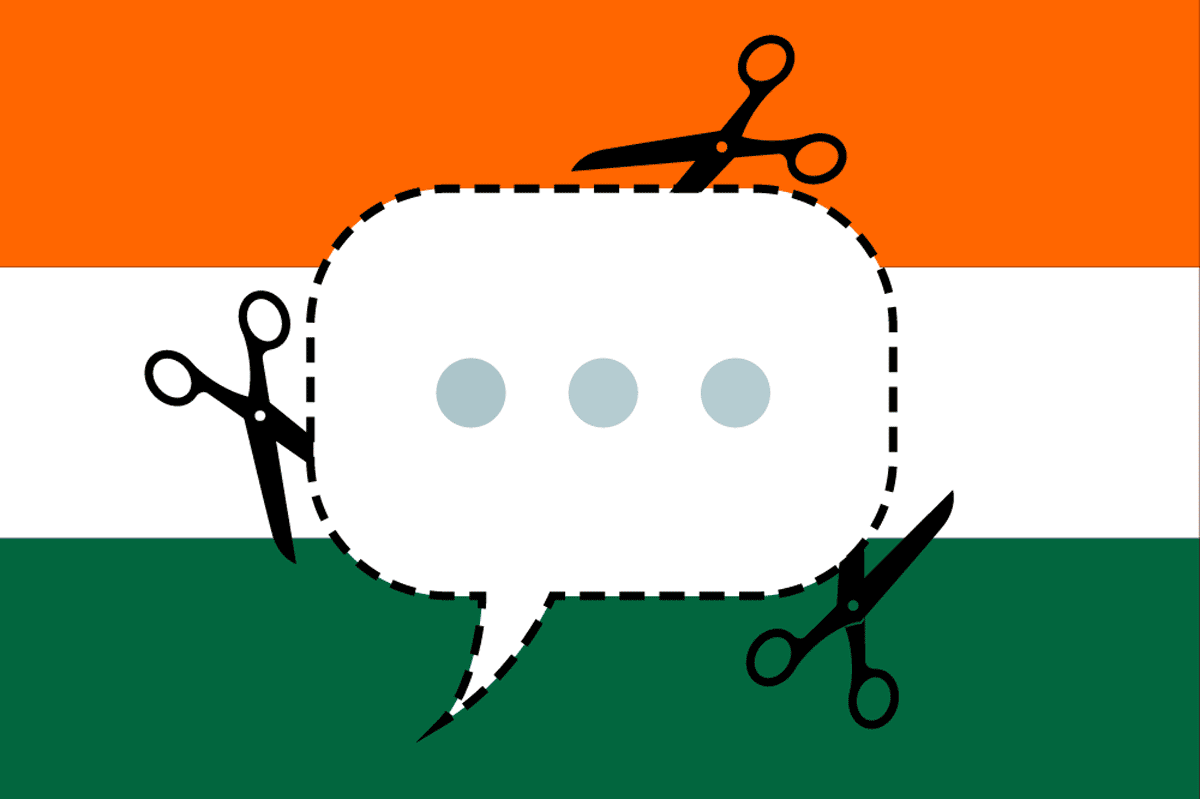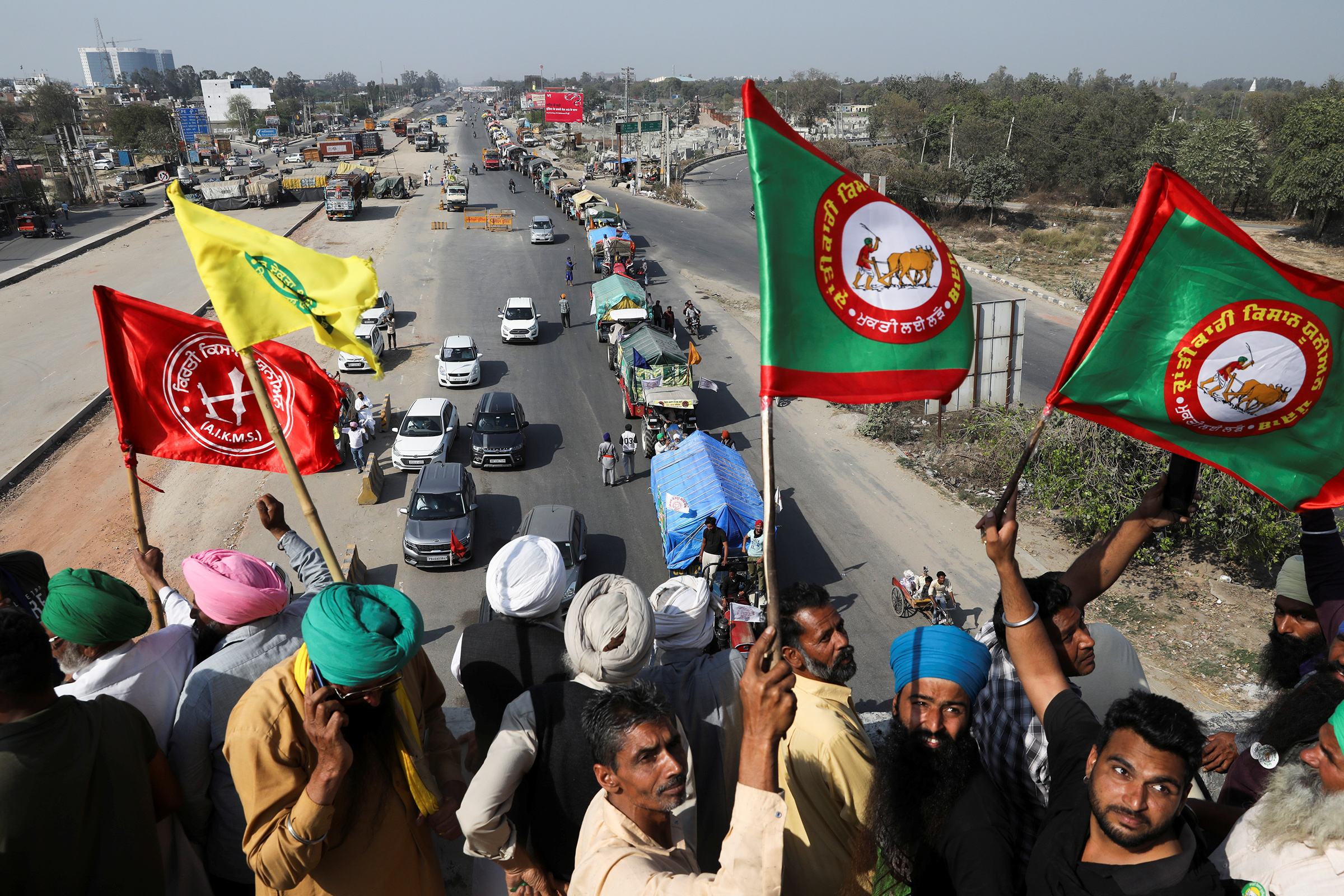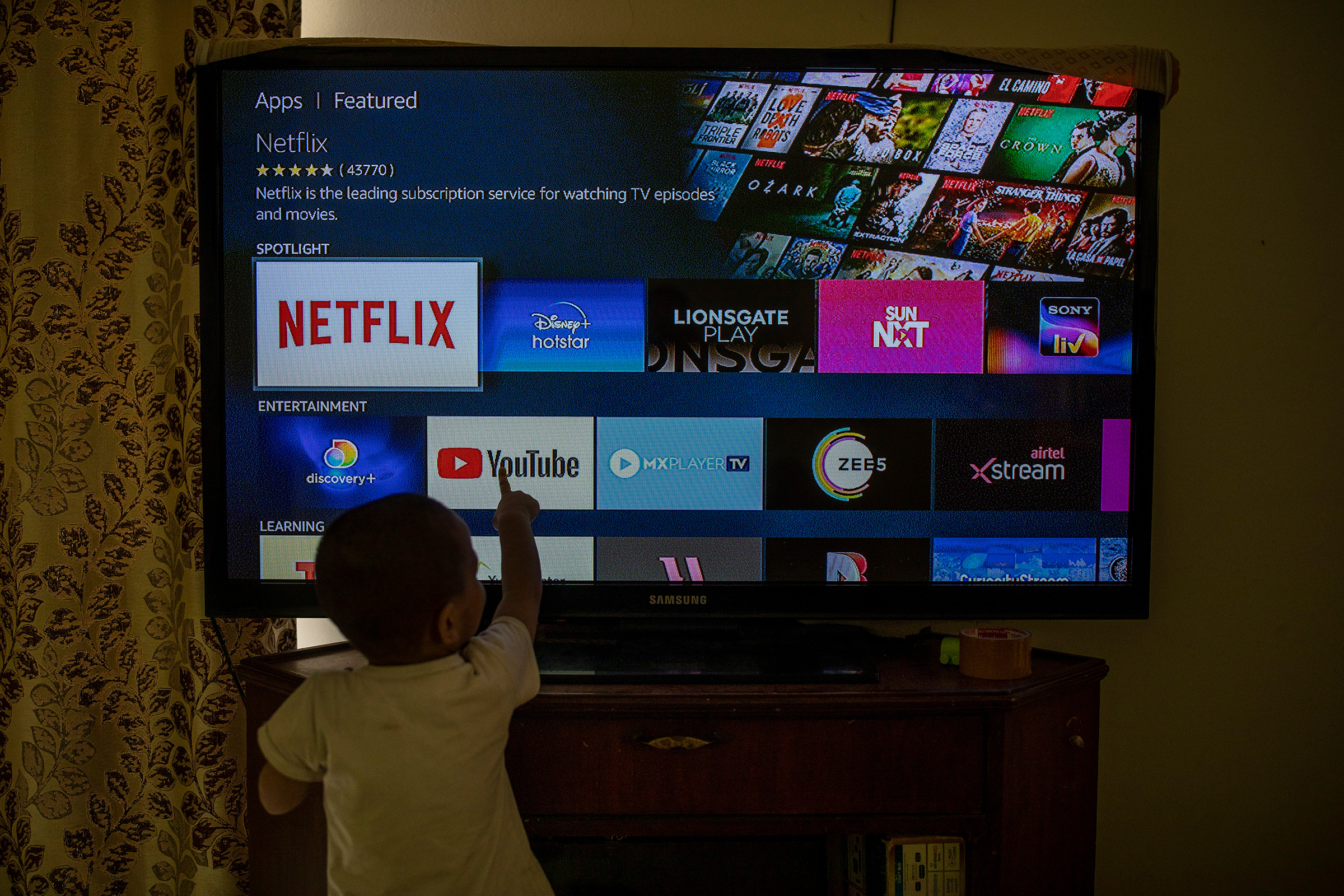
The Indian government must suspend sweeping new Internet regulations, 10 international NGOs said in an open letter Thursday.
The new rules, brought in by executive order in late February, give the Indian government an arsenal of muscular new powers that will force tech companies and news outlets to comply with government surveillance and censorship demands.
The rules increase the pressure on U.S. tech companies including Facebook, Twitter and WhatsApp to comply with what the letter’s authors say is an increasingly authoritarian Indian government—or risk losing access to India, their biggest market in the world, which many see as key to future growth.
The Indian government had been preparing the new rules for years, but published them amid an escalating protest movement by Indian farmers that has captured both national and international attention. In February, the Indian government clashed with Twitter over the company’s refusal of a government request to remove hundreds of posts by activists and politicians about the protests, with the company saying they constituted freedom of expression. After the Indian government threatened Twitter employees with jail time, Twitter eventually re-blocked most of the posts.
Read More: Why Twitter Blocked Accounts Linked to Farmers’ Protests in India
“Why the government brought this up now is deeply linked to the farmer protests,” says Raman Jit Singh Chima, the Asia-Pacific policy director at Access Now, one of the groups that signed the open letter criticizing the rules. “After the pushback they received from social media firms, who were contesting orders they were receiving, the government definitely wants to send a clear signal that ‘we are going to regulate you, and if you push back, it will result in more regulation overall.’”

India’s new rules come at a time when tech platforms are facing threats of regulation by Western governments over content including hate speech, misinformation, and incitement to violence. But the Indian rules are more worrying, the open letter says, because they are part of a wider push toward “digital authoritarianism,” including Internet shutdowns and arrests of journalists. Although the Indian rules also contain useful provisions like mandating transparency in cases when user content has been removed, they come with no clear mechanisms for tech companies to push back against potentially unlawful government demands.
“The rules change the fundamental Internet experience for any average user in India,” says Apar Gupta, executive director of India’s Internet Freedom Foundation. “Social media companies, streaming platforms and online news portals are now being brought under some level of direct government supervision,” he says. “These rules are a very stark illustration of a desire of the government to control the online conversation. They extend forms of regulation over areas that enrich any kind of democracy, and encourage self-censorship.”
The Indian government says the rules are designed to prevent “abuse and misuse” of social media. “The new rules instead seek to empower the users of social media by requiring these platforms to put in place a robust public grievance redressal mechanism,” a representative of India’s Ministry of Electronics and Information Technology said in a March 17 letter to TIME. “It brings digital media outlets at par with print and electronic media with the underlying principle of self-regulation to ensure compliance to existing laws of India.”
What do the new rules say?
The rules force companies to remove content that the government says is illegal within three days of being notified, including content that threatens “the interests of the sovereignty and integrity of India,” public order, decency, morality, or incitement to an offense. The rules also state that platforms must hand over information about users to law enforcement upon request.
Encrypted messaging platforms like WhatsApp—which is owned by Facebook—will also be forced under the new rules to keep information on who the “first originator” of any message is, and provide it to the government upon demand. WhatsApp is already facing similar legislation in Brazil, its second-biggest market after India. And Western intelligence agencies have also pressured encrypted platforms to build “backdoors” into their messaging services.
WhatsApp did not respond to TIME’s request for comment, but its head Will Cathcart said the company was “still digesting them and understanding what they actually mean, or don’t mean,” in an interview on Big Technology, a podcast by journalist Alex Kantrowitz.
Cathcart suggested that WhatsApp may be prepared to bring legal cases in India if the rules meant breaking the end-to-end encryption that the chat service is based on. “If you’re talking about break[ing] encryption, it’s really hard for me to imagine being comfortable with it,” he said. “It’s hard for me to imagine even how you ask people to do that, I think it’s such a fundamental threat. So, we’ll stand and we’ll make our case, and we’ll argue.”
Facebook and Signal (an end-to-end encrypted messaging app that is growing in popularity in India) did not respond to TIME’s requests for comment.
Read More: The Inside Story of How Signal Became the Private Messaging App for an Age of Fear and Distrust
In a statement, Twitter said: “We are studying the updated guidelines, and we look forward to continued engagement with the Government of India to strike a balance between transparency, freedom of expression, and privacy … We believe that regulation is beneficial when it safeguards citizen’s fundamental rights and reinforces online freedom.”
India’s new rules also say that companies must appoint a resident Indian citizen to be a “chief compliance officer” who will be criminally liable for any failure to comply with the rules. “India’s worst-kept secret is that if you work in the Internet industry, you will face arrest threats and threats of prosecution on a regular basis,” Chima says. “They’re just trying to codify this in one place. The idea is that if you have one person, you can put them under so much pressure that it will force compliance.”
The open letter by the 10 activist groups called on tech companies to resist the new rules. “They should interpret and implement legal demands as narrowly as possible, to ensure the least possible restriction on expression, notify users, seek clarification or modification from authorities, and explore all legal options for challenge,” the letter said.

A chilling effect on the press
As well as social media and streaming platforms, the new rules also impose strict new limits on digital news platforms—where a small handful of Indian publications have managed to remain critical of the government. In March, India’s democracy rating was downgraded from “free” to “partly free” by the U.S.-based NGO Freedom House, which cited among other factors the government’s “rising intimidation of academics and journalists.”
Under the new rules, digital publications will be subject to oversight by government-run committees, with the power to block publication of stories, remove stories, or even shut down entire websites. One of the 10 signatories of the open letter on Thursday is Reporters Without Borders, an NGO that campaigns for press freedom worldwide.
“Digital media has been quite outspoken, and I see this clearly as a way to bring it to heel, to control it, and perhaps intimidate it,” says Sidharth Bhatia, a founding editor of The Wire, a leading online publication that regularly publishes content critical of the Indian government. “It is executive overreach of the worst kind.”
Read More: Press Watchdog Urges India to Drop Investigation Into Journalist Over COVID-19 Reporting
The new legislation could result in critical reporting being silenced, Bhatia says. “Let’s say we’re about to publish a story about somebody powerful,” he says. “In a normal journalistic way, we will probably send a message before publication saying we would like your point of view. That person could very well go and say ‘I fear they will publish a very damaging story against me, and it’s libelous, etc.’” If that were to happen, he says, the case would be escalated through two committees, that contain no representatives of the digital media, until it is heard by a senior bureaucrat in India’s Ministry of Information. “At that level, you’re not likely to want to go against the government,” Bhatia says.
The publisher of The Wire is challenging the government’s new rules in the Indian court system—a challenge that a Delhi high court judge upheld on Tuesday, with the case adjourned to April 16.
Bhatia says that if the new rules are allowed to stand, they will have a “terrible chilling effect” on Indian journalism. “There is already talk within the media of journalists self-censoring,” he says. “More and more will say it’s not worth the trouble.”
More Must-Reads from TIME
- Cybersecurity Experts Are Sounding the Alarm on DOGE
- Meet the 2025 Women of the Year
- The Harsh Truth About Disability Inclusion
- Why Do More Young Adults Have Cancer?
- Colman Domingo Leads With Radical Love
- How to Get Better at Doing Things Alone
- Michelle Zauner Stares Down the Darkness
Write to Billy Perrigo at billy.perrigo@time.com